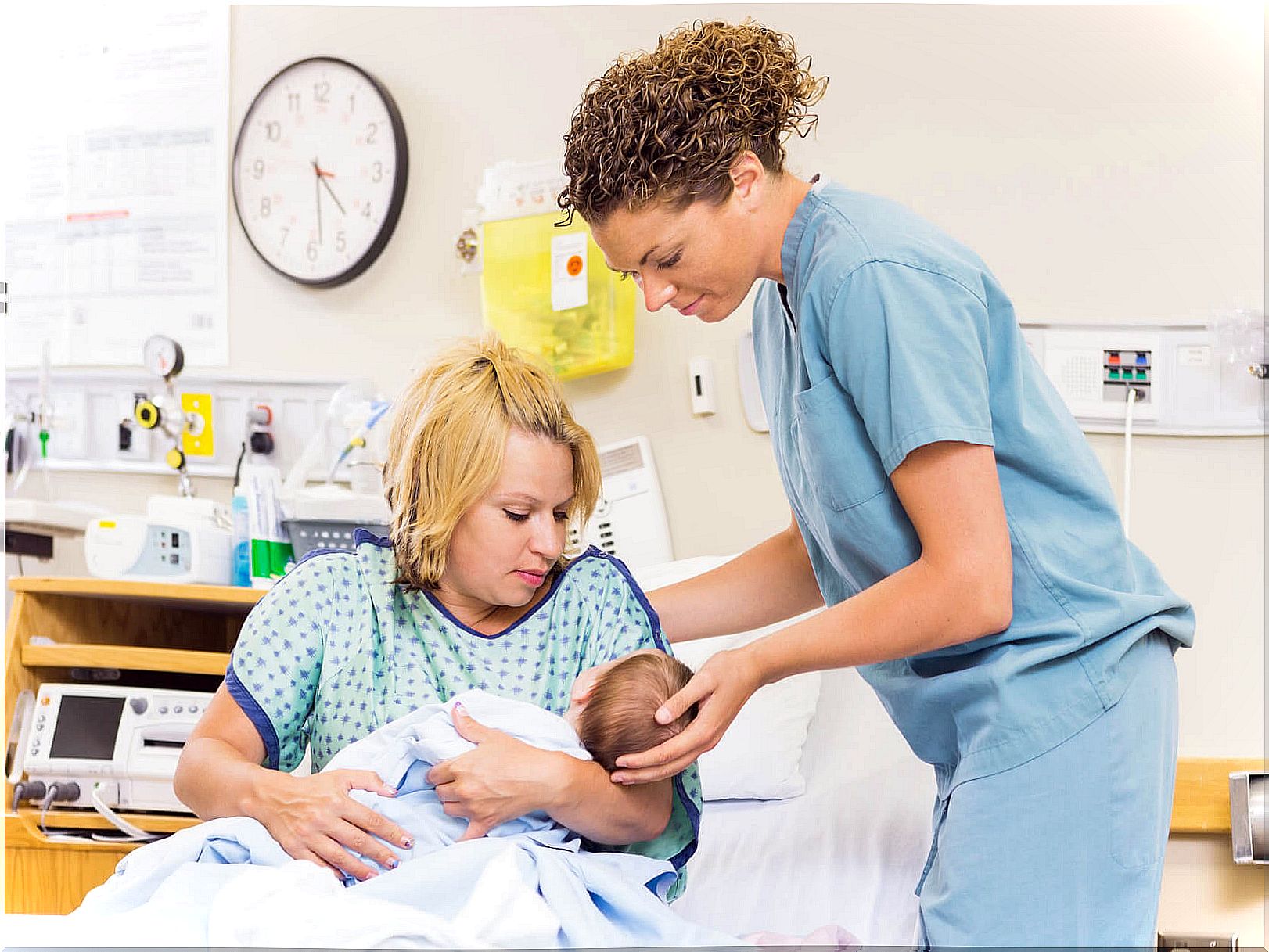The Labor Of Midwives Beyond Childbirth

Midwives have existed since time immemorial, they are mainly associated with labor; however, they can act with their wisdom during pregnancy and postpartum. At present we can speak of schools for midwives (and midwives), also of prenatal courses that these characters can teach in specialized centers, in addition, it is known that their advice is very valuable in the breastfeeding stage.
In more distant times, midwives were women specialized in helping to give birth to other women, but this specialty was granted more than anything by their experience. In general, popular wisdom, mythological beliefs, and other natural factors made up the repertoire of every matron of yesteryear.
However, with the passage of time, this specialty has been certified from a scientific and social point of view, therefore, it is no longer just about women with a lot of natural knowledge of the childbirth process. In the same way, it is possible that mothers can go to them with our doubts and can also accompany motherhood in other ways.
Lactation consultant midwives

From the International Board Certified Lactation Consultants, IBCLC (Certified Breastfeeding Consultants) every year hundreds of nurses known as “midwife nurses” are certified, this certification allows more women to go to specialized lactation hands. Although breastfeeding is a natural and instinctive process, it sometimes requires some stimulation and adaptation.
The work of certified midwives in lactation consultancy, teach new mothers the secrets of this process, in addition, they advise them on the mechanisms that improve the practice. These consultations can be done during the prenatal and postnatal stages, because although it may not seem like it, they are very necessary advice.
A woman breastfeeding for the first time will need support in many ways, even experienced women may find themselves in different situations. Despite the fact that most of the time the process proceeds normally, for some women it can be a difficulty that requires the intervention of experts.
Midwives can contribute to correcting errors in breastfeeding, which, if any, can come from either of the two parties. Mom may have a health problem or doubts about the process, but it is also likely that the baby needs help adjusting to this new feeding system.
During the consultation with the midwives, the mothers provide the necessary information to identify the possible problem. In particular , sessions of at least one hour or what is necessary are carried out to evaluate procedures and techniques that improve exercise; There is also the possibility of carrying out these consultations at home.
When is the intervention of midwives timely?

In most cases, mothers solve their problems at home with their children, their mothers, relatives, and their own experience. However, there are situations that merit the intervention of specialized personnel; Although many of these can be resolved by gynecologists, sometimes they are aspects that require the application of natural methods, a lot of patience and a high degree of complicity.
Many of these certified midwives can help us through prenatal course sessions, they will teach us things that we do not know will happen and they will guide us on what is happening to us. Not all the changes that motherhood has in store for us can be revealed in a few sessions, in addition, midwives assure that this information is forgotten because most women focus especially on the moment of delivery.
In any case, the most specific and common queries have to do with the breastfeeding process. Among the main queries regarding this topic we find:
- Pain during breastfeeding, cracked nipples, blocked ducts, or mastitis
- Difficulty in docking
- Refusal of the baby to breastfeed
- Problems derived from surgeries, low milk production, weight loss
- Doubts about extraction
- Need to dedicate to exclusive or mixed breastfeeding
- Twin or tandem breastfeeding (breastfeeding children of different ages)
- Babies with physical disabilities (Down syndrome, cleft lip, neurological disorders, cleft palate)
- Premature births
- Choking or reflux
- Weaning
As you can see, the role of midwives goes far beyond what we imagined and understanding it can make things easier for us in case we need them.









